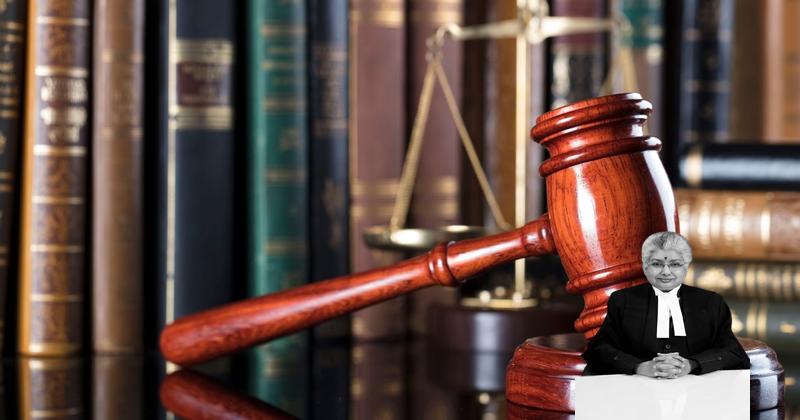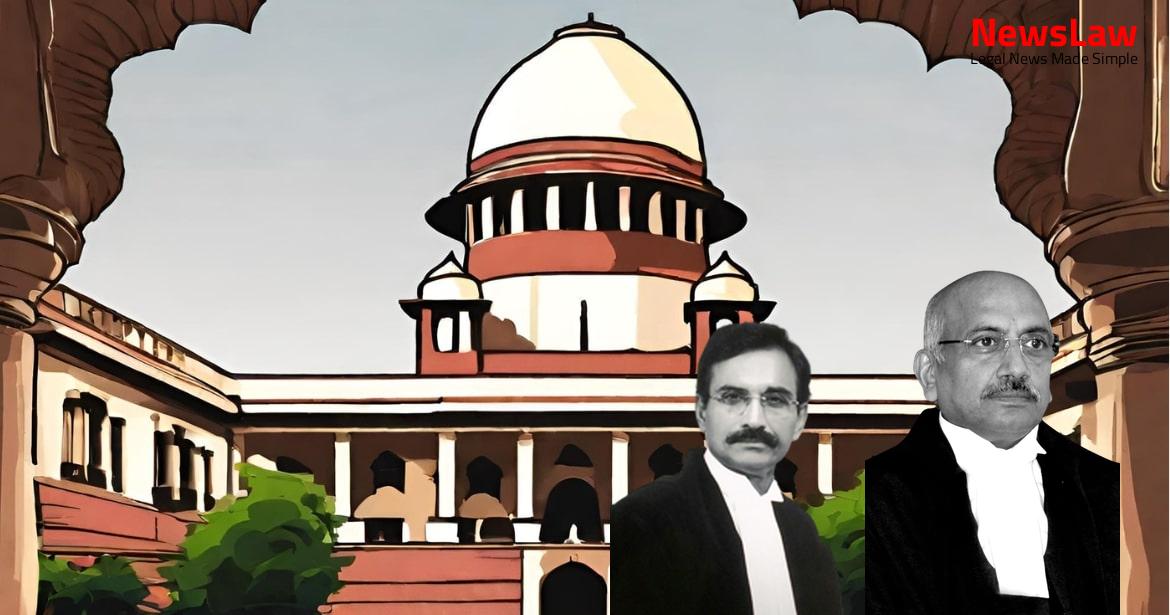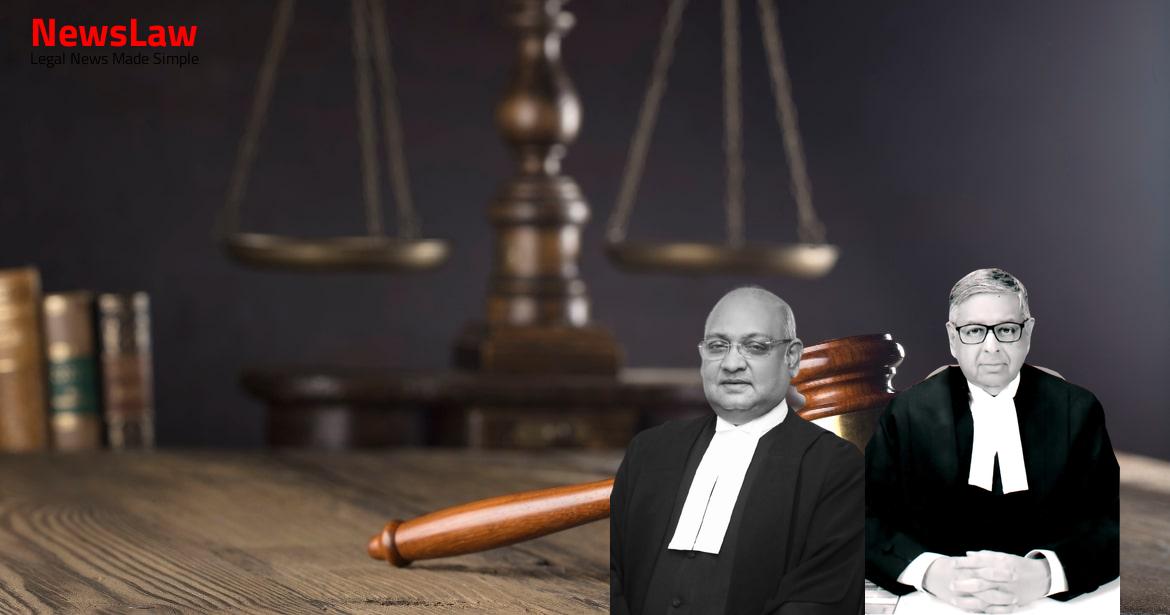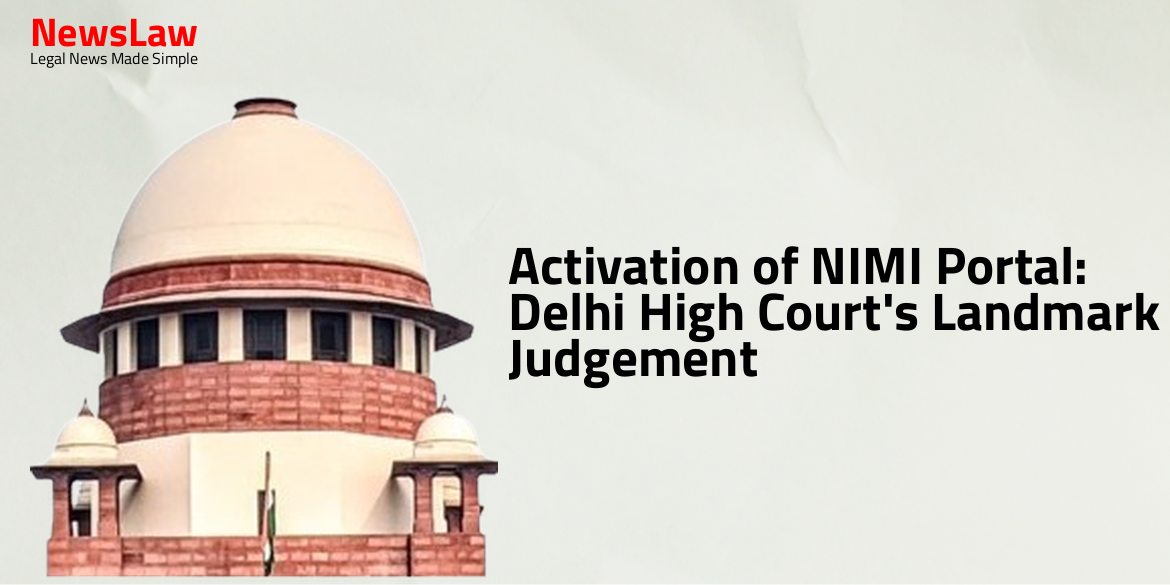A large number of cases relating to service matters of members of the three-armed forces of the Union of India had been pending in Courts for a considerable period of time and, thus, the Central Government engaged in the question of constituting an independent adjudicatory forum for defence personnel. One such issue which begs consideration before us is whether the order passed by the Armed Forces Tribunal would be amenable to challenge in the writ jurisdiction under Article 226 of the Constitution of India before any High Court.
Also Read: https://newslaw.in/supreme-court/selection-and-appointment-of-judicial-officers-in-himachal-pradesh/
Union of India & Others, which unequivocally opined that the power of judicial review under Article 226 is part of the basic structure of the Constitution and all the decisions of a tribunal, whether constituted under Article 323A or 323B of the Constitution, would be subject to the High Court’s writ jurisdiction under Article 226 of the Constitution. [There were five judgments for the majority, delivered by Sikri, C.J., Shelat & Grover, JJ. did not attempt to catalogue the basic features, the identification of the basic features by the other Judges are specified in the following paras of the Court’s judgments : Sikri, C.J. As long as some fundamental rights exist and are a part of the Constitution, the power of judicial review has also to be exercised with a view to see that the guarantees afforded by those rights are not contravened…. Judicial review has thus become an integral part of our constitutional system and a power has been vested in the High Courts and the Supreme Court to decide about the constitutional validity of provisions of statutes.
Thus, as most matters are personal to litigants being in the nature of service matters, and may not involve a point of law of “ general public importance ”, a litigant does not have any forum for grievance redressal, except the High Court under Article 226, which it can approach, aggrieved by an order of the Armed Forces Tribunal. – (1) Save as otherwise expressly provided in this Act, the Tribunal shall exercise, on and from the appointed day, all the jurisdiction, powers and authority, exercisable immediately before that day by all courts (except the Supreme Court or a High Court exercising jurisdiction under articles 226 and 227 of the Constitution) in relation to all service matters.” Learned counsels contended that Articles 226 and 227 of the Constitution are not in pari materia and, thus, the limitation imposed under Article 227(4) could not be extended to Article 226 of the Constitution. (4) Nothing in this article shall be deemed to confer on a High Court powers of superintendence over any court or tribunal constituted by or under any law relating to the Armed Forces.” Thus, even for the sake of argument, were it to be said that Article 227(4) takes away the power of superintendence of the High Court for matters emanating from courts-martial under Section 15 of the said Act, the same will not dilute the power of the High Courts under Article 226 even for matters dealing with courts-martial. , was against the well-settled principle of law and established judicial precedent since that judgment sought to create a complete bar to the High Court’s power to review decisions arising from the Armed Forces Tribunal under Article 226 of the Constitution of India.
Such a complete bar is contrary to the Constitution Bench decision of the Supreme Court in L. Chandra Kumar, this Court settled that the writ jurisdiction under Article 226 does not limit the power of the High Court, expressly or by implication, against military or armed forces dispute and that the restriction under Article 227(4) is only qua administrative supervision by the High Courts and not qua judicial review. Balasubramanium sought to contend that the first half of Section 3(o) of the said Act is amenable to the jurisdiction of the Armed Forces Tribunal and the matters listed in the second half are not amenable to the jurisdiction of the Armed Forces Tribunal. (o) “service matters”, in relation to the persons subject to the Army Act, 1950 (46 of 1950), the Navy Act, 1957 (62 of 1957) and the Air Force Act, 1950 (45 of 1950), mean all matters relating to the conditions of their service and shall include- (i) remuneration (including allowances), pension and other retirement benefits; (ii) tenure, including commission, appointment, enrolment, probation, confirmation, seniority, training, promotion, reversion, premature retirement, superannuation, termination of service and penal deductions; (iii) summary disposal and trials where the punishment of dismissal is awarded; (iv) any other matter, whatsoever, but shall not include matters relating to- (i) orders issued under section 18 of the Army Act, 1950 (46 of 1950), sub-section (1) of section 15 of the Navy Act, 1957 (62 of 1957) and section 18 of the Air Force Act, 1950 (45 of 1950); and (ii) transfers and postings – (1) Subject to the provisions of section 31, an appeal shall lie to the Supreme Court against the final decision or order of the Tribunal (other than an order passed under section 19): Provided that such appeal is preferred within a period of ninety days of the said decision or order: Provided further that there shall be no appeal against an interlocutory order of the Tribunal. (2) An application to the Tribunal for leave to appeal to the Supreme Court shall be made within a period of thirty days beginning with the date of the decision of the Tribunal and an application to the Supreme Court for leave shall be made within a period of thirty days beginning with the date on which the application for leave is refused by the Tribunal. (3) An appeal shall be treated as pending until any application for leave to appeal is disposed of and if leave to appeal is granted, until the appeal is disposed of; and an application for leave to appeal shall be treated as disposed of at the expiration of the time within which it might have been made, but it is not made within that time.” We must point out here that a reading of Section 30 would show that the appeal provision to the Supreme Court is subject to the provisions of Section 31. Learned counsel sought embargo from the High Court exercising jurisdiction under Article 226 of the Constitution in the following cases: i) All cases related to Courts of Inquiry, Court(s) Martial, and Discipline; ii) All cases related to pension and other retirement benefits, tenure, promotion, retirement, administrative termination of service, such as in cases involving moral turpitude, and leave; iii)
Matters pertaining to the Official Secrets Act; and iv) Cases relating to espionage/sabotage.
Lastly, it was submitted that the nature of the Armed Forces Tribunal must be kept in mind, which is distinct from a normal administrative tribunal under Article 323A or other tribunals under Article 323B of the Constitution and, thus, the High Court should not in routine interfere with the orders of the Armed Forces Tribunal under Article 226 seeking to exercise the jurisdiction akin to say a Central Administrative Tribunal.
The Armed Forces have their own rules and procedures, and if there is proper exercise of jurisdiction in accordance with the norms of the Armed Forces, the High Court or this Court have been circumspect in interfering with the same, keeping in mind the significance of the role performed by the Armed Forces. Thus, while upholding the principles of “Tribunalisation” under Article 323A or Article 323B, the Bench was unequivocally of the view that decisions of Tribunals would be subject to the jurisdiction of the High Court under Article 226 of the Constitution, and would not be restricted by the 42 Constitutional Amendment which introduced the aforesaid two Articles. The need for the observations in the five-Judges’ Bench in Rojer Mathew case qua the Armed Forces Tribunal really arose because of the observations made in Major General Shri Kant Sharma & Anr.
We can say with some experience of handling these matters in exercise of jurisdiction under Article 226, prior to the creation of the Armed Forces Tribunal, that there used to be a large number of pension matters. We believe that there is no necessity to carve out certain cases from the scope of judicial review under Article 226 of the Constitution, as was suggested by the learned Additional Solicitor General. We would loath to carve out any exceptions, including the ones enumerated by the learned Additional Solicitor General extracted aforesaid as irrespective of the nature of the matter, if there is a denial of a fundamental right under Part III of the Constitution or there is a jurisdictional error or error apparent on the face of the record, the High Court can exercise its jurisdiction.
Mukherjee case, and Rojer Mathew case making it abundantly clear that there is no per se restriction on the exercise of power under Article 226 of the Constitution by the High Court. The first category of cases is one where the matters were heard on merits by the respective jurisdictional High Courts but were disposed of as not maintainable in view of the judgment in Major General Shri Kant Sharma & Anr. SLP(C)
No.20499/2015 titled Krishnan Mishra v. Union of India; SLP (C) No.28101/2016 titled Nirmal Singh v. The Union of India in Civil Appeal No.5327/2015 titled Union of India v. As petitions filed under Article 226 of the Constitution against orders of the Armed Forces Tribunal are held to be maintainable, this matter would also require to be remanded to the High Court to be decided on merits since it is a service matter personal to the litigant and does not involve a point of law of general public importance.
It was submitted that prayer for declaring Sections 30 & 31 as ultra vires would not be pressed in case the writ jurisdiction under Article 226 is held to be maintainable and, thus, the prayer was to dispose of this matter with liberty to approach the High Court. [Sanjay Kishan Kaul]………………………
J.
Case Title: UNION OF INDIA Vs. PARASHOTAM DASS (2023 INSC 265)
Case Number: C.A. No.-000447-000447 / 2023



